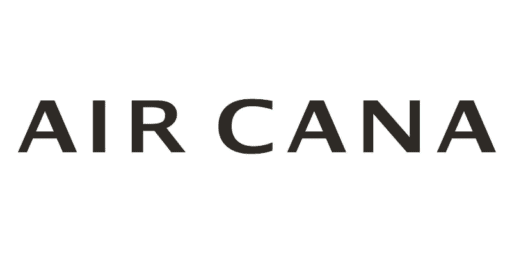The Best REIT ETFs in Canada For 2024
A Real Estate Trust (REIT) ETF is the most straightforward way to invest in real estate without becoming a landlord yourself or spending time researching the 30+ individual REITs on the Toronto Stock Exchange.
This article will give you all the details about REIT ETFs:
- What they are and how they diversify your portfolio
- How they’re different from Real Estate Trusts (REITs)
- How to recognize good REIT ETFs
- Which Canadian REIT ETFs are the best picks for 2024
Top REIT ETFs in Canada: Quick Comparison
| Name | Ticker | Number of Holdings | MER |
| Vanguard FTSE Canadian Capped REIT ETF | VRE | 19 | 0.38% |
| BMO Equal Weight REITs Index ETF | ZRE | 17 | 0.61% |
| iShares’ S&P/TSX Capped REIT ETF | XRE | 23 | 0.61% |
| CI Canadian REIT ETF | RIT | 39 | 0.87% |
What are REIT ETFs and Why Invest in Them?
Loyal readers of MDJ will know that we’re big fans of ETFs, or exchange traded funds. They’re the ideal tool for building a low cost diversified portfolio. Like a mutual fund, an ETF is a single investment product that is made up of a portfolio of other investments and is designed to track the performance of a particular index.
REIT ETFs are tied to the real estate trust market. Instead of putting your money into shares of a single REIT, a REIT ETF allows you to invest in a whole portfolio of REITs. This increases diversification by allowing you to invest in many of the best REITs at once.
REITs vs. REIT ETFs
While a real estate trust (REIT) owns and/or manages a selection of properties, they tend to specialize in a single real estate sector. For example, Granite REIT focuses on international industrial and warehouse properties, while H&R REIT focuses on single and multi-tenant properties in North America. We get into all the ins and outs of REITs in our post on Investing in REITs in 2024.
Meanwhile, a REIT ETF gives investors a way to maximizes portfolio diversification without requiring a lot of research. They offer a professionally balanced REIT portfolio that investors can buy into.
For example, instead of solely investing in a REIT that focuses on, say, residential buildings in major Canadian cities, you can buy a REIT ETF and simultaneously invest in industrial, retail, residential, and healthcare real estate. That means that if one sector crashes (think office space real estate during COVID lockdowns in 2020), your investment won’t be as affected.
The downside to REIT ETFs is that you’re paying for that extra diversification. The MER for REIT ETFs is higher than the management fees for REITs. Also, a number of REIT ETFs are heavily weighted towards a few top REITs – so at a certain point some investors might prefer to just invest in those REITs individually.
What Makes a Good REIT ETF?
When you’re looking at Canada’s selection of REIT ETFs, keep an eye out for the following signs. They’ll help you determine whether the ETF you’re looking at is a good one.
Low Management Fee
REIT ETFs have a range of MERs, and even our list of the best REIT ETFs varies from 0.87% to 0.38%. But generally speaking, lower is better.
The higher the MER, the more the fees cut into your investment earnings. They’re all lower than your typical mutual fund’s MER, but you want to be sure that the REIT ETF is worth investing in and won’t eat into your profits. If the MER is higher, you’ll want to make sure that the performance justifies the fees (you’ll see one example of this on our list below).
Diversification
REIT ETFs can be diversified in a few ways:
- Number of holdings: Good REIT ETFs should have a solid selection of REITs in their portfolio. The best REIT ETFs in Canada include anywhere from 19 to 30+ REITs.
- Size of included REITs: Ideally REIT ETFs should maximize diversification by including a range of REITs including medium and small companies, not just the largest ones.
- Balanced asset allocation: If a single REIT or pair of REITs in the ETF’s holdings has the majority of the asset allocation, that’s a bad sign. The more balanced the REIT ETF, the less volatile the investment should be.
- Multiple real estate sectors: A good REIT ETF will include a variety of sectors to maximize diversification. Again, the more diversified the sectors, the less severe the impact of a sector crash will be.
Liquidity
When you’re considering a REIT ETF, take a look at the average trading volume to make sure that it’s seeing some active trading. The last thing you want is to invest and then not be able to sell when you’re ready to. The best REIT ETFs in Canada have average trading volumes in the thousands.
Stable Management and a Long Track Record
The best REIT ETFs (and the best ETFs in Canada in general) are well established. If you’re thinking about adding a new REIT ETF to the mix, check and see how long they’ve been trading. Take a look at their management company and make sure it’s a trusted ETF provider.
Are REIT ETFs Worth The Fees You Pay?
Different investors have different takes on what kinds of fees are worth it for them, but our stance on REIT ETFs is that, yes, they’re worth it for longterm passive investing.
REIT ETFs are more diversified than single REITs and their MER is lower than a mutual fund would be. Historically, REITs and REIT ETFs outperform direct real estate investing, not to mention the fact that they’re easier to get into than investment property ownership.
However, REITs, REIT ETFs, and real estate in general, are not ideal for short term investing because the real estate market can fluctuate. If you’re looking for somewhere safe to invest your money in the short term, check out our post on the Top Short Term Investments in Canada.
What Are The Best Canadian REIT ETFs to Buy Right Now?
After reviewing the Canadian market, we’ve settled on our 4 top-recommended REIT ETFs for Canadian investors. We’ve included all the information you need in order to get a full picture of how they would fit into your investment portfolio.
These REIT ETFs are from well-established companies with excellent track records. They vary in size and specifics, but they’re all excellent ways to diversify your portfolio and add some real estate to the mix.
Vanguard FTSE Canadian Capped REIT ETF
- Ticker: VRE
- AUM: $335.05M CDN
- MER: 0.38%
- Average volume: 9,070
- Annualized Distribution Yield: 4.18%
- Dividend Schedule: Monthly
With an MER of only 0.38%, the Vanguard FTSE Canadian Capped REIT has the lowest fees of any of the ETFs on our list. VRE has only 19 holdings and specializes in medium to small-cap companies. The portfolio includes retail, industrial, residential, commercial, and healthcare REITs.
VRE is a bit top-heavy, with 50% of the total portfolio split among the top 5 holdings. It’s the smallest REIT ETF on the list, with assets under management topping out below $340M CDN. However, even though it’s small, it’s got plenty of liquidity. VRE’s average trading volume is over 9,000 shares daily.
The Vanguard FTSE Canadian Capped REIT has a lower annualized yield than many of the top REIT ETFs, at 4.18% – but keep in mind that their MER is much lower than the others on this list.
BMO Equal Weight REITs Index ETF
- Ticker: ZRE
- AUM: $654.21M CDN
- Average volume: 16,747
- MER: 0.61%
- Annualized Distribution Yield: 4.56%
- Dividend Schedule: Monthly
BMO’s Equal Weight REITs Index ETF (ZRE) is designed to replicate the performance of the Solactive Equal Weight Canada REIT Index. It holds approximately equal allocations of 23 of Canada’s top real estate investment trusts, with a mix of residential, retail, and industrial properties.
An equal weighting keeps the ETF from being top-heavy and means that if any of the holdings change significantly in value, only a fraction of the ETF’s value will be affected. The management fee for ZRE stands at 0.61%, which is on the high end of average for REIT ETFs, but it’s a major improvement over the 1-2% you’d pay for a mutual fund.
The BMO Equal Weight REITs Index ETF (ZRE) hit the market in 2010, which gives it a solid track record with stable management. Its average trading volume is almost 17,000.
iShares’ S&P/TSX Capped REIT ETF
- Ticker: XRE
- AUM: $1,127M CDN
- Average volume: 476,995
- MER: 0.61%
- Annualized Distribution Yield: 4.46%
- Dividend Schedule: Monthly
Blackrock’s iShares’ S&P/TSX Capped REIT ETF (XRE) has been around since 2002, which makes it the oldest REIT ETF on our list. It’s also the largest, with over a billion dollars in assets under management and an average trading volume of almost half a million.
XRE has a tendency to be somewhat top-heavy, with only 17 holdings and the top two holdings alone accounting for around 25% of the total portfolio. It includes a mix of residential, retail, office, industrial, and healthcare properties, with a focus on retail (36.99% at the time of writing) and residential (26.3%).
XRE is managed with the goal of long-term capital growth, and the distribution yield is 4.46%. The MER is on the high-average end at 0.61%, but XRE is a reliable, proven investment that has yielded dividends of around 4% for the past decade.
CI Canadian REIT ETF
- Ticker: RIT
- AUM: $642.59M CDN
- MER: 0.87%
- Average volume: 13,845
- Annualized Distribution Yield: 4.59%
- Dividend Schedule: Monthly
Formerly known as CI Canadian First Asset REIT ETF, CI Canadian REIT ETF (RIT) has the highest management fee of any REIT ETF on our list, at a whopping 0.87%. However, it’s also one of the highest-performing because it’s actively managed instead of being rebalanced quarterly.
This ETF has a long track record. It started as a mutual fund in 2005, then transitioned to an ETF in 2015. Its portfolio includes 39 different real estate holdings, although the list can vary. RIT is quite evenly split, with the top-weighted REIT at only 5.73% of the holdings as of the time of writing. It’s a well diversified ETF, with industrial, residential, commercial, and healthcare REITs represented.
CI Canadian REIT ETF (RIT) has performed at 8% over the past 10 years, even in the face of Covid, economic downturns, etc. It has an average trading volume of over 13,000 trades daily, demonstrating plenty of liquidity. Dividends have hovered around 4-5% for the past decade, making it a solid option in spite of the steep MER.
Canadian REIT ETFs – FAQ
Should Canadians Invest in REIT ETFs?
Canadian REIT ETFs are a great way to diversify your portfolio. Adding real estate to your assets can offset stock market volatility as well as pay regular dividends. The best REIT ETFs in Canada are well diversified in terms of ETF size and industry. They’re balanced investments with low MERs and long track records.
That being said, REIT ETFs do involve more fees than individual REITs. If you’re looking to cut costs to the bone and don’t mind doing your own research and rebalancing, then you might want to consider skipping the ETFs and sticking with your choice of REITs.
Whether you’re looking to invest in REITs or the best REIT ETFs in Canada, consider using our top recommended brokers Qtrade or Questrade. Qtrade offers free buying and selling of over 100 ETFs, including CI Canadian First Asset REIT ETF (RIF). Questrade offers commission-free buying of all Canadian and US listed ETFs.
I've Completed My Million Dollar Journey. Let Me Guide You Through Yours!
Sign up below to get a copy of our free eBook: Can I Retire Yet?











Any thoughts on HCRE for taxable accounts? Considering the complicated tax implications, it seems like a good option for taxable accounts.